A Tourists Guide to the Amazing Nubian Villages in Aswan
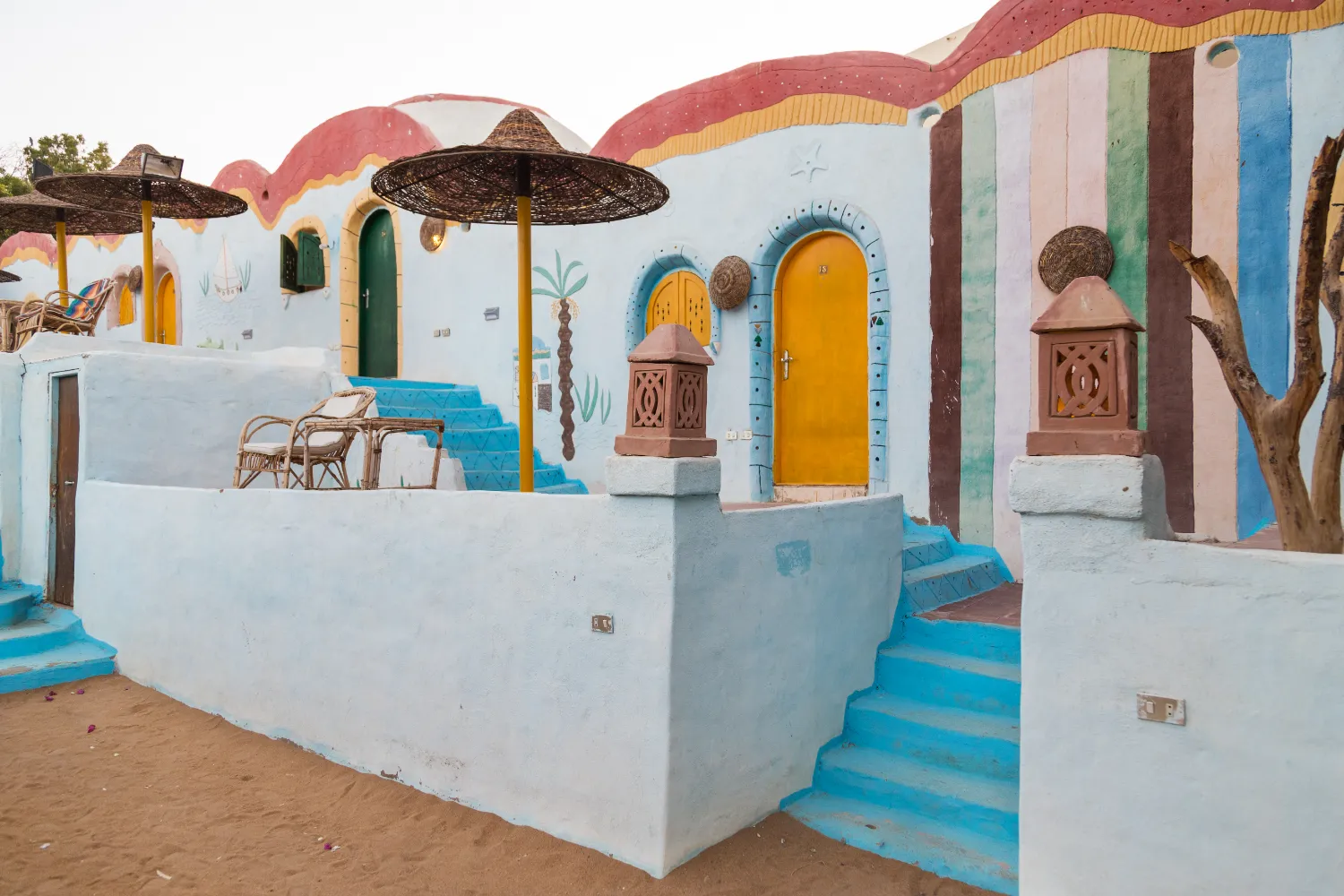
Updated On: April 18, 2024 by Ciaran Connolly
Stepping into the Nubian Villages of Aswan is like diving headfirst into vibrant tales of history, culture, and authenticity, carefully connected together over centuries.
Located on the lush banks of the Nile, the Nubian Villages are evidence of the resilient spirit of the Nubian people, a society that holds tight to its unique identity amidst the shifting sands of time.
This is a place where the walls of brightly coloured houses whisper ancient tales, where the flowing Nile bears witness to timeless traditions, and the exotic aromas of Nubian cuisine are bound to tease your senses.
Join us as we explore the fascinating heritage of the Nubian Villages, venture through their distinctive architecture, partake in unforgettable activities, and experience hospitality like never before.
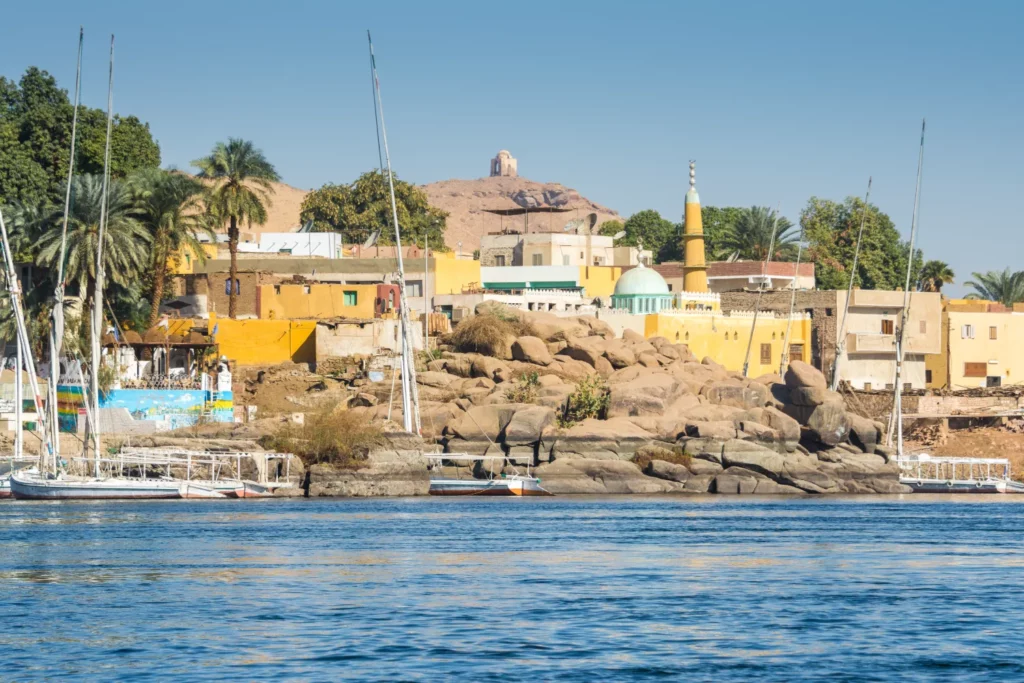
The Unique Location
Located in the southern reaches of Egypt, near the bustling city of Aswan, the Nubian Villages are nestled between the Nile’s grandeur and the Sahara’s stark beauty.
Since antiquity, this location has been home to the Nubians, offering them fertile soil and abundant fishing. On West Seheil Island and scattered along the river’s West Bank, they established vibrant communities under the sun-drenched African sky.
For centuries, the Nubian people adapted to their environment, with the Nile’s seasonal rhythms shaping their unique agricultural calendar. Their enduring connection to this land, despite historical challenges and resettlement in the 1960s due to the construction of the Aswan High Dam, underscores the powerful bond between the Nubians and their ancestral home.
The Nubian Villages await if you are yearning for an off-the-beaten-path destination that is vibrant, welcoming, and rich with undiscovered narratives. Welcome to your next great adventure.
Let’s Take a Felucca!
Greetings, fellow adventurers! Prepare for a journey as we set sail on the mighty Nile towards the vibrant Nubian Villages. There are several ways to embark on this magical voyage, whether by traditional felucca, comfortable sailboat, or modern electric boat; each offers a unique perspective of this timeless region.
Our journey begins from the heart of Aswan, and as we cruise down the Nile, keep your eyes peeled for sights of river life that have remained unchanged for centuries. Farmers tending to their fertile fields, fishermen casting their nets, children waving from the shore – all against a backdrop of the vast desert meeting the verdant river banks.
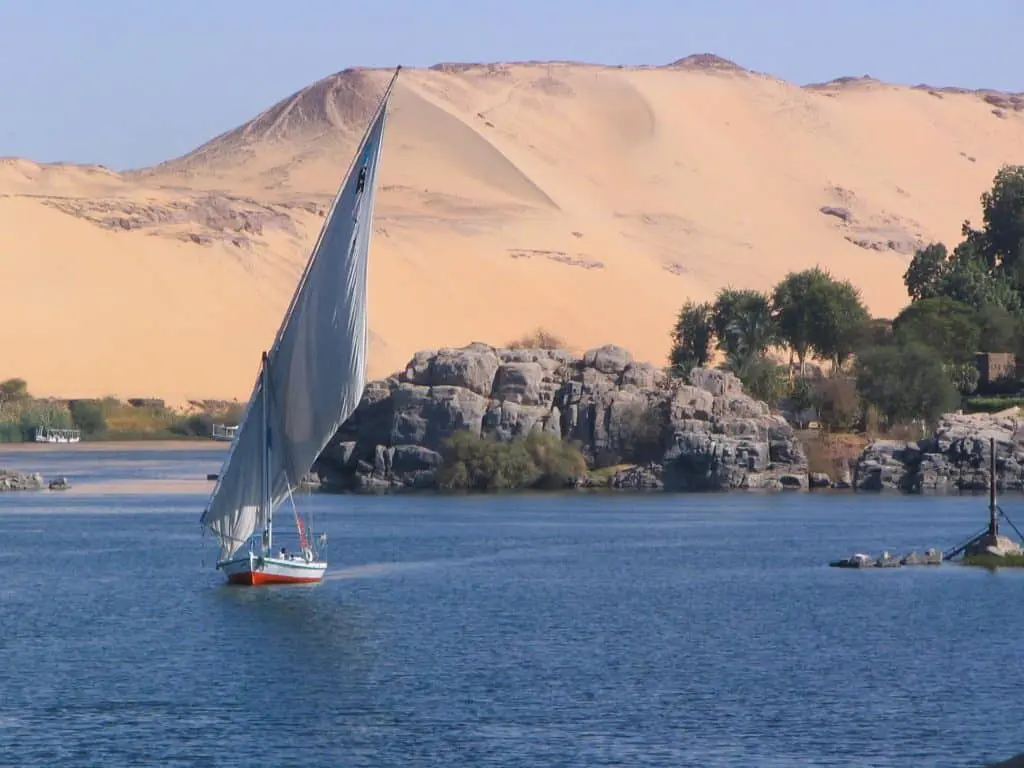
As we draw nearer to the villages, vivid colours of domed tops begin to emerge from the river’s edge. In between the palm and mango trees are clusters of Nubian houses painted in radiant blues, yellows, and pinks. They stand in stark contrast against the golden dunes, a charming visual symphony that will undoubtedly capture your imagination.
Beyond the village boundaries, the formidable silhouette of the desert is broken by the tombs and ruins of ancient Nubian civilisations, whispering tales of a grand past. And on the horizon, the magnificent Aswan High Dam, a testament to modern engineering, completes the remarkable vista that surrounds the Nubian Villages.
Your anticipation builds as the boat gently docks, and authentic immersion into the Nubian lifestyle awaits. So, let’s embark on this journey together, navigating the Nile’s gentle currents en route to a remarkable encounter with the past and the present in the vibrant Nubian Villages.
A Warm Welcome
Your sailboat trip comes to an end as we dock at the West Suheil village, where your authentic Nubian experience unfolds further. You’re highly encouraged to spend a night or two in the village to embrace the full depth of Nubian culture and lifestyle.
The Nubian hospitality is renowned, a warm welcome that transcends mere courtesies. You’ll find it is a genuine embrace that invites you into their community. Consider donning a traditional Nubian garment as you settle into your chosen accommodation. These brightly coloured, loose-fitting robes are an expression of the vibrant Nubian identity and lend an added touch of authenticity to your experience.
Accommodations range from traditional Nubian guesthouses to comfortable, fully equipped lodges. Each one is tastefully adorned with natural furnishings, utilising local materials and inspired by the surrounding environment, resulting in a cosy, unique aesthetic that seamlessly blends with the village setting.
And then, there’s the food. Traditional Nubian meals are a feast for the senses, served in clay pottery on wooden or bamboo tables. Prepared with locally sourced ingredients, these meals are a culinary journey into the heart of Nubian culture.
You’ll wake up to the aroma of fresh bread being baked in wood-fired ovens and a traditional breakfast prepared just for you. Lunch and dinner are similarly immersive experiences, with each dish offering a new flavour to discover.
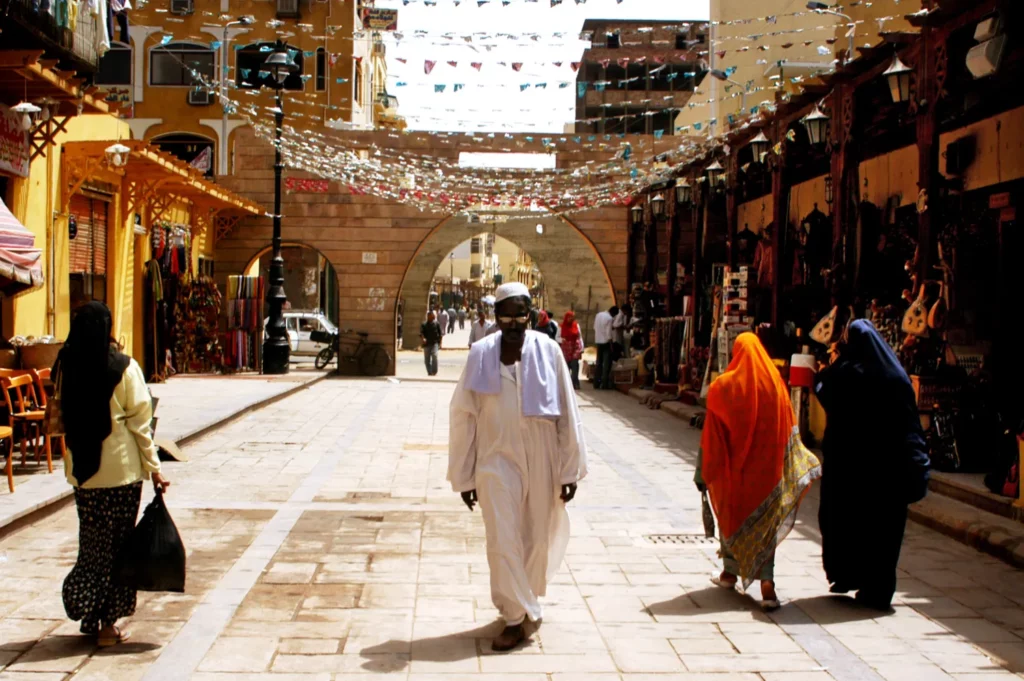
What To Do in The Nubian Villages
As we continue our journey through the Nubian Villages, a wide array of activities and experiences await, offering deeper insight into the vibrant Nubian culture and lifestyle.
Village tours and walking paths provide a wonderful opportunity to observe local life. A stroll through the maze of alleyways is like stepping back in time, where the traditional Nubian lifestyle coexists with modern conveniences.
As you navigate the vibrant lanes of the villages, like Koti or Siou, you’ll encounter locals going about their daily routines, children playing, and a cheerful atmosphere that’s infectious.
One significant aspect of Nubian culture is pottery, a craft that has been perfected over centuries. Many of the Nubian houses you will see on your walk are adorned with beautifully shaped and painted pottery pieces.
Pottery schools such as the Feryal Garden Pottery School offer workshops where you can learn about traditional Nubian pottery techniques and even try your hand at crafting a piece. This interactive experience provides valuable support for local artisans and creates a lasting personal souvenir.
In the evenings, the villages come alive with traditional music and dance performances. As the sun sets, villagers gather to enjoy these communal celebrations. Local musicians play the tambour, a traditional Nubian drum, creating a rhythmic backdrop for the dancers who showcase the unique dance styles of the region.
This shared cultural experience is a highlight for many visitors and a joyful demonstration of the Nubian love for music and dance.
Lively Boat Tours
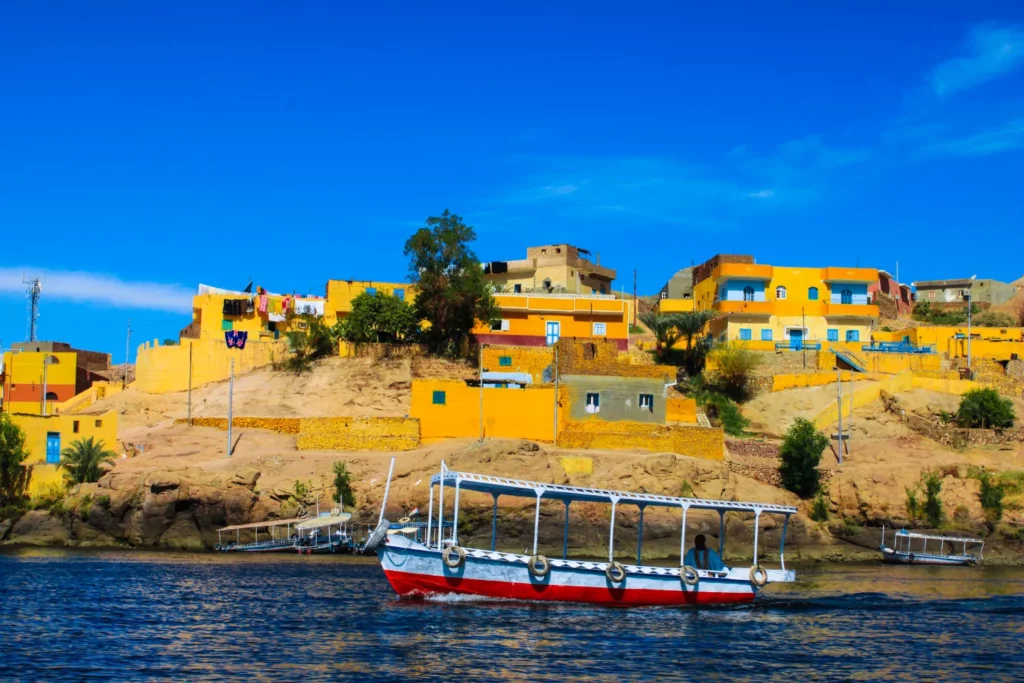
Boat tours offer a unique perspective of the Nubian Villages and their surroundings. The Nile River has been the lifeblood of Nubian civilisation for centuries, and exploring it is integral to understanding this resilient culture.
Numerous islands dot the river, each with its unique history and charm. Heisa Island, for instance, is known for its lush agriculture and warm-hearted locals. In contrast, Seheil Island is famous for its ancient rock inscriptions, providing insights into the historical interactions between the Nubians and other cultures.
Last but not least, a visit to the local craft markets is a must. The Souk of Aswan, a bustling market full of local vendors, offers a plethora of Nubian handicrafts.
The stalls are filled with beautifully woven baskets, colourful textiles, intricately beaded jewellery, and striking pottery, all handmade and each piece unique.
In the villages themselves, smaller markets like the Gharb Soheil Market offer a more intimate shopping experience. These markets not only provide an opportunity to purchase a piece of Nubian art but also directly support the local economy.
Savouring the Flavours of Nubia
No visit to the Nubian Villages would be complete without exploring the rich Nubian cuisine. Traditional dishes like “Tajin”, a flavourful stew cooked in a cone-shaped clay pot, and “Bouri”, Nile fish grilled or baked with an assortment of local herbs, are must-try items.
For an authentic dining experience, “Al Dokka” is a favourite among locals and visitors alike, known for its homemade dishes and riverside setting. Another popular spot is the “Nubian House”, which offers not only traditional meals but also cooking classes for those interested.
These restaurants are typically adorned with local art and craft, offering a relaxed dining atmosphere with views over the Nile or the village.
Trying Nubian cuisine is an essential part of your cultural immersion, a delightful sensory journey that complements your overall experience in the Nubian Villages.
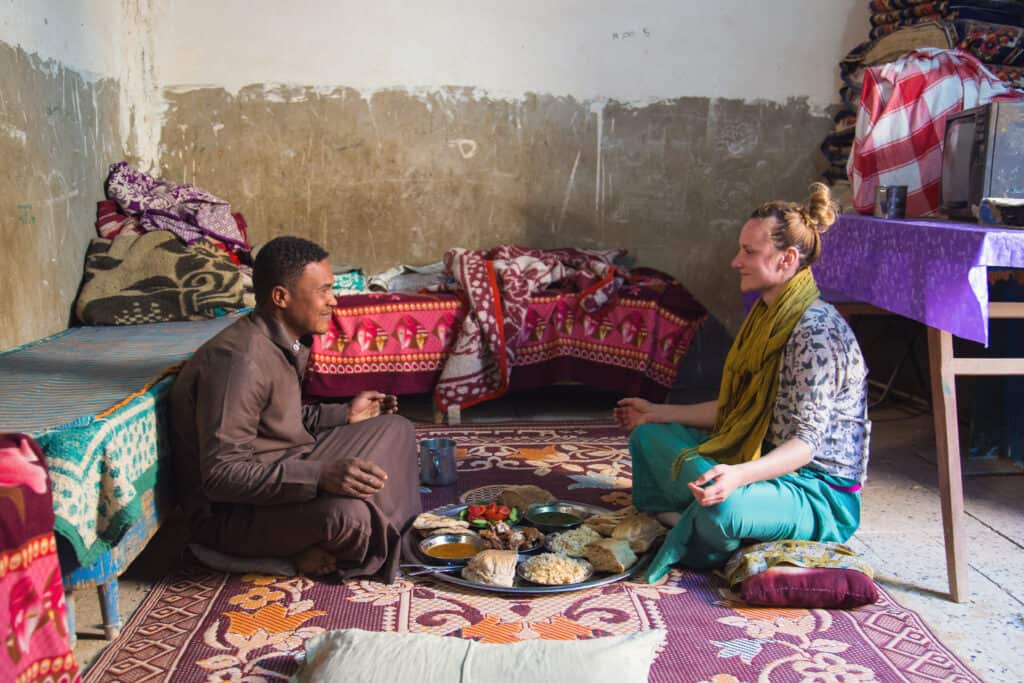
Best Places to Spend the Night
In West Suheil, one of the largest Nubian Villages, a range of guesthouses are available. For a budget-friendly option, the Nubian Oasis Hotel offers simple but clean rooms, with prices starting at around $20 per night.
For a mid-range option, Bet el Kerem Guesthouse provides a tranquil riverside setting and well-appointed rooms, with rates typically between $40-$60 per night.
For a more luxurious stay, the Anakato Nubian Houses offer plush, comfortable accommodations with stunning views of the Nile, typically priced above $100 per night.
Each guesthouse displays the distinctive Nubian architectural style with domed roofs, vibrant colours, and local crafts and offers a warm welcome that makes every visitor feel like a part of the community.
Staying in these guesthouses not only provides a unique accommodation experience but also supports the local economy and the preservation of Nubian traditions.
A Glimpse into the Rich History and Culture of Nubia
The Nubian Villages you see today are the legacy of a rich history dating back millennia. Once home to powerful ancient kingdoms like Kerma, Napata, and Meroë, Nubia was a thriving civilisation with significant cultural and trade exchanges with ancient Egypt.
Evidence of this interaction can still be seen in shared architectural and artistic styles.
The 20th century brought about drastic changes, with many Nubians being resettled due to the construction of the Aswan High Dam.
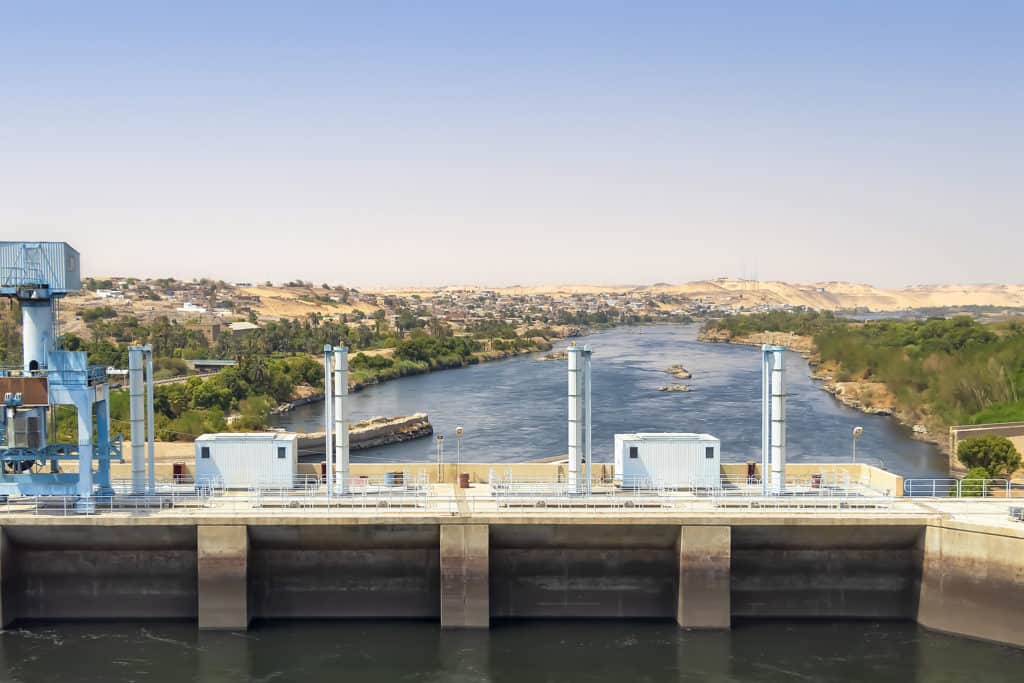
Despite this, they preserved their distinct culture, including their languages, Nobiin and Kenuzi-Dongola. Today, the Nubian language, while not as widely spoken, remains a symbol of their identity and resilience.
Among Nubian customs, hospitality stands out. Visitors are often greeted with a welcome drink, ‘Karkade’, a hibiscus tea. In every corner of Nubian life, from their vibrant houses to their enduring traditions, you’ll find people deeply proud of their heritage and eager to share it with you.
Nearby Must-Visit Attractions
While in the Nubian Villages, there are several nearby attractions that are well worth your visit. The Aswan High Dam, a marvel of modern engineering, is just a short distance away. Its construction played an essential role in the history of the Nubian people and is a significant site for understanding the region’s recent history.
Another must-visit is the Temple of Philae, dedicated to the goddess Isis. This stunning temple complex was relocated to Agilkia Island due to the Aswan High Dam construction and is a testament to both ancient splendour and modern preservation efforts.
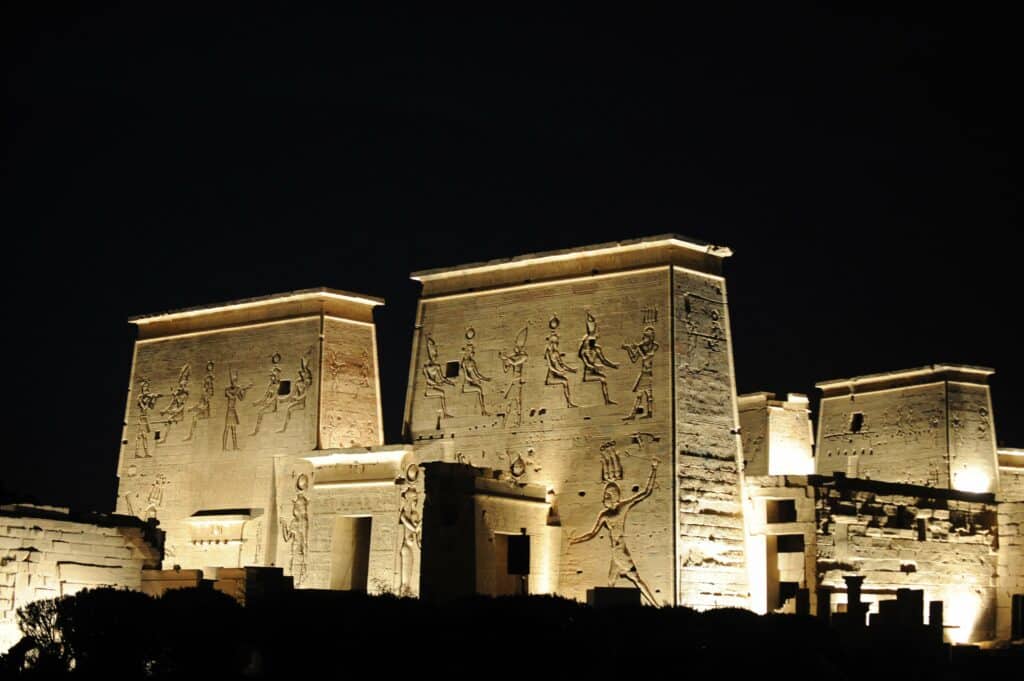
The Unfinished Obelisk, in the northern region of ancient Egypt stone quarries in Aswan, offers a glimpse into the stone working techniques of the ancients. These sites are easily accessible from the Nubian Villages, each offering a unique perspective on the rich tapestry of history that characterises this region.
The Nubian Villages are more than just a tourist destination. They are living, breathing communities where traditions are cherished and where every visitor is welcomed with open arms.
By participating in these activities, you’re not just observing a culture; you’re becoming a part of it. And in doing so, you’re ensuring the preservation and continuation of the Nubian way of life.






